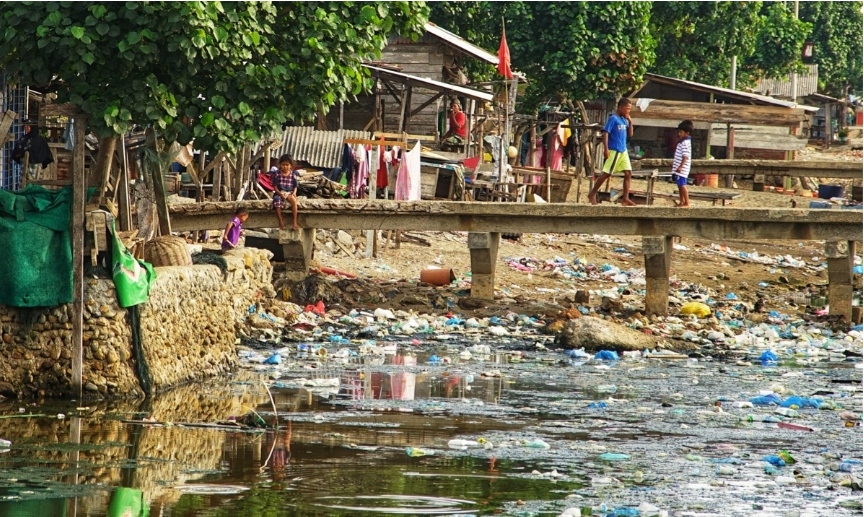US World’s Biggest Contributor To Plastic Pollution

Children play by a river mouth that has been inundated with rubbish at a coastal village in Lhokseumawe, Indonesia’s Aceh Province. Research by the University of Georgia, the US, which was published in 2018, said that Indonesia’s oceans are the places to find the second largest plastic waste in the world. The US is by far the biggest contributor to global plastic waste in the world, according to a new report submitted to the federal government Wednesday that called for a national strategy to tackle the growing crisis.
Overall, the US contributed around 42 million metric tons (MMT) in plastic waste in 2016 – more than several times than India and at least twice as much as even China and more than the countries of the European Union combined, according to the analysis.
On average, every American generates 130 kilograms of plastic waste per year, with Britain next on the list at 99 kilograms per person per year.
Entitled “Reckoning with the US Role in Global Ocean Plastic Waste,” the report was mandated by Congress as part of the Save Our Seas 2.0 Act, which became law in December 2020.
“The success of the 20th century miracle invention of plastics has also produced a global scale deluge of plastic waste seemingly everywhere we look,” wrote Margaret Spring, chief science officer of Monterey Bay Aquarium, who chaired the committee of experts that compiled the report.
She added global plastic waste was an “environmental and social crisis” that impacted inland and coastal communities, polluted rivers, lakes and beaches, placed economic burdens on communities, endangered wildlife and contaminated waters that humans depend on for food.
Global plastic production rose from 20 million metric tons in 1966 to 381 MMT in 2015, a 20-fold increase over half a century, the report said.
Initially, attention to ocean waste focused solely on ship and marine-based sources, but it is now known that almost any plastic on land has the potential to reach the oceans via rivers and streams, the report added.
Research has shown nearly 1,000 species of marine life are susceptible to plastic entanglement or to ingesting microplastics, which then make their way through the food web back to humans.




